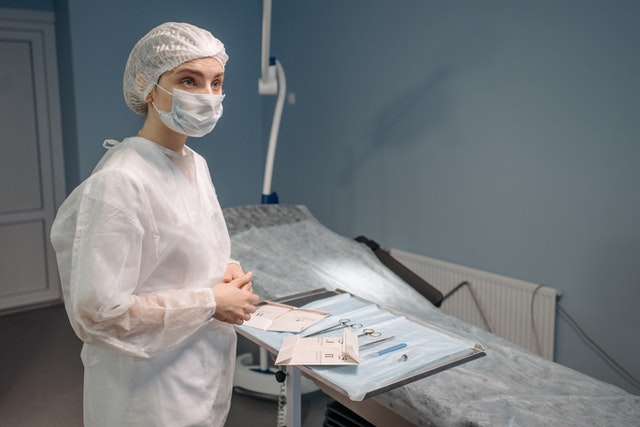Do you have jowls? Many people are self-conscious about this issue and don’t know how to get rid of them. In this guide, we will discuss what causes jowls and how you can eliminate them. So, if you want to know more, just keep reading, and you will find out everything you need to know about jowls.
1. What are jowls?
Jowls are sagging skin on the lower part of your face, around your jawline. This can happen to anyone as they age, due to a loss of skin elasticity. However, other factors can contribute to the formation of jowls, such as weight gain or genetics. If you are concerned about your jowls, there are some things you can do to get rid of them. When you gain weight, it can cause your skin to stretch and loosen. If you are carrying extra weight and want to get rid of your jowls, then losing weight may be the solution for you. Another common cause of jowls is genetics. If your parents or grandparents had jowls, then you may be more likely to develop them as well. There’s not much you can do about this, but as mentioned at https://www.drdarrenmckeown.com/conditions-and-treatments/treat-jowls/, there are still treatments available that can help improve the appearance of your jowls. For example, by consulting cosmetic professionals, you can find some solutions for jowls. This will help you achieve the goals that you have set for your appearance.
2. What are some treatments for jowls?
There are a few different treatment options available for jowls. One option is to undergo a facelift. This is a surgical procedure that can help to tighten the skin around your jawline and get rid of excess skin. However, it is important to note that a facelift is a major surgery, and it comes with some risks. These risks include infection, bleeding, and nerve damage. You will also need to take some time off from work to recover from the surgery. If you are not ready for such a commitment, there are some nonsurgical options available as well. For example, you could try facial exercises or use special creams and serums that are designed to tighten the skin. These non-surgical options may not be as effective as a facelift, but they are less invasive and have fewer risks. Talk to your doctor to see which treatment option is right for you.
3. How can you prevent jowls?
There are a few things you can do to prevent jowls from forming. First, you should protect your skin from the sun. Ultraviolet rays can damage your skin and contribute to a loss of elasticity. This can make it more likely for jowls to form. You should also avoid smoking. Smoking can damage your skin and make it more difficult for your skin to heal. This can also lead to a loss of elasticity and an increased risk of jowls. Finally, you should try to maintain a healthy weight. If you are carrying extra weight, it can cause your skin to stretch and loosen. This can lead to sagging skin, especially around your jawline. If you are concerned about your weight, talk to your doctor about ways you can safely lose weight. If you take care of your skin and avoid things that can damage it, you will be less likely to develop jowls.
4. What are some other conditions that can cause jowls?
In addition to weight gain and genetics, there are a few other conditions that can cause jowls. One condition is called dermatochalasis. This is a condition that causes the skin to thin and become less elastic. This can happen due to aging or exposure to the sun. Another condition that can cause jowls is ptosis. This is a condition where the muscles around the eye become weak and droop. This can cause the skin around the eye to sag, which can make jowls more pronounced. If you have any of these conditions, talk to your doctor about treatment options. There are treatments available that can help improve the appearance of your jowls. Sometimes, these treatments can even help to prevent jowls from forming in the first place.
5. What are some tips for choosing a treatment for jowls?
There are a few things you should keep in mind when choosing a treatment for jowls. First, you should consider your goals. If you are looking for a quick fix, you may want to consider surgery. However, if you are not ready for such a commitment, there are some nonsurgical options available that can still help improve the appearance of your jowls. You should also consider your budget. Surgery is usually more expensive than nonsurgical options, but it is important to talk to your doctor about all of your treatment options and find one that is right for you. Finally, you should consider your lifestyle. If you have a busy lifestyle, you may not have time to recover from surgery. In this case, nonsurgical options may be a better choice for you. Talk to your doctor to see which treatment option is right for you.
6. What is the age minimum for this procedure?
There is no age minimum for this procedure. However, it is important to talk to your doctor about whether or not the procedure is right for you. Some people may not be candidates for the procedure due to health reasons. In addition, the procedure may not be as effective in older patients since the skin can become less elastic with age. Talk to your doctor to see if you are a good candidate for this procedure. You should preferably be over the age of 18 and in good health. This is a decision that should be made between you and your doctor. You should also have realistic expectations for the results of the procedure. If you are young, there is a chance that your skin will continue to age and change over time. This means that you may need to have the procedure again in the future to maintain your results.
While jowls are often thought of as a sign of aging, there are many factors that can cause them. Genetics, weight gain, and certain medical conditions can all lead to the formation of jowls. There are both surgical and nonsurgical options available for treating jowls. The best option for you will depend on your goals, budget, and lifestyle. Talk to your doctor to see which treatment option is right for you. Good luck!










